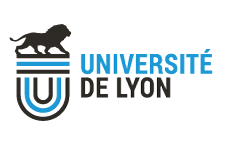Unités de recherche
Partenaire 07: Laboratoire de Radiobiologie Cellulaire et Moléculaire
Biologie, médecine, santé
- Adresse :
- UFR Faculté de Médecin Lyon-Sud-Charles Mérieux BP12
165 Chemin du Grand Revoyet
69921 OULLINS Cedex - Sur Internet :
- http://lyon-sud.univ-lyon1.fr/ciblage-therapeutique-en-oncologie-618116.kjsp?RH=ACCUEIL
- Tutelle :
- UCBL - HCL
Organisation
Représentant: Claire RODRIGUEZ-LAFRASSE
The “Laboratoire de Radiobiologie Cellulaire et Moléculaire (LRCM) “(Project Leader: Pr C. Rodriguez-Lafrasse) is one of the four teams of EMR3738 UCB Lyon1 – HCL(Director Pr F.N. Gilly) “Ciblage Thérapeutique en Oncologie” dedicated to the improvement of cancer therapeutic targeted by surgery, chemotherapy and radiotherapy.
The LRCM which develops fundamental, preclinical and clinical radiobiology is located in the Lyon-Sud platform of the CLARA Canceropole and is member of the SFR Biosciences Gerland-Lyon Sud UMS3444/US8 (Inserm - CNRS - UCB Lyon 1 - ENS de Lyon). It thus benefits from the technical equipment which includes a 300 kV irradiator dedicated to the irradiation of cells and rodents. At its beginning, the LRCM focused on the molecular mechanism of tumor resistance to photon irradiation and then extended its field of research to carbon ions due to their higher biological efficiency and the initiation of a project of hadrontherapy in Lyon. Its research project is thus developed in the framework of the ETOILE Centre, in close collaboration with the physicists of IPNL (Pr M. Beuve).
This first theme of research of LRCM concerns the molecular response of tumor cells to carbon ion and photon irradiation and aims at:- defining the molecular signature of carbon ions (DNA lesions, signaling and cell death, effects on cancer stem cells). This work has been developed in collaboration with LAN (Dr T. Douki, 1 publication submitted) and GSI, Darmstadt (Dr C. Fournier, Int J Radiat Oncol Biol Phys. 2009 May 1;74(1):200-9 and 1 publication submitted); - providing radiobiological parameters (EBR) and new inputs (residual foci, telomere length…) for micro- and nano-dosimetry models in order to optimize treatment planning (Coll with IPNL - Pr M. Beuve: see Int J Radiat Oncol Biol Phys. 2008 Jun 1;71(2):635-42); and LPC Clermont (Dr G. Montarou)). Irradiations with carbon ions are performed at GANIL (Caen) and Darmstadt (Germany) after submission of proposals to their scientific boards.
The financial support was obtained from “Contrat de Plan Etat-Région”, “Ligue contre le Cancer”, INCA (GRRAAL project) and Eurons. The team participates to the European projects ENLIGHT (European Network for Light Ion HadronTherapy) and ULICE (Union of Light Ion Centres in Europe).
The two other issues concern: - The identification of predictive biomarkers of the response to radiotherapy and hadrontherapy. This work is conducted in order to individualize treatments based on the evaluation of the patient’s molecular profile (protein markers and / or miRNA signature and / or residual DNA damage) established from tumor biopsies. This work is developed partly in the framework of the hospital activity of the team leader (HCL). The participation of the team to the “Programme Hospitalier de Recherche Clinique” (2011) and LYRIC project (INCA 2011) will enable to validate different biomarkers in unresectable or R2 resected sarcomas and cystic adenoid carcinomas treated by carbontherapy or conventional radiotherapy; - The development of adjuvant treatment sensitizing tumors to conventional radiotherapy or particle therapy. This work is performed in cellular and preclinical models of cancers. Different strategies have been developed and validated in the laboratory (2 patents) and in partnership with industry (Oncogenex, Pharmamar, Erytech). In this context, collaboration was initiated in 2009 with LPCML (Pr O. Tillement) in order to evaluate the sensitizing potential of lanthanide-based nanoparticles to photon or carbon ion irradiation (Project Proof of Concept from CLARA Canceropole, J Nanosci Nanotechnol. 2011 Sep;11(9):7833-9 link : http://www.ncbi.nlm.nih.gov/pubmed/22097494).



 Accueil
Accueil PRES LYON
PRES LYON Nous contacter
Nous contacter Archives
Archives WebAdmin
WebAdmin